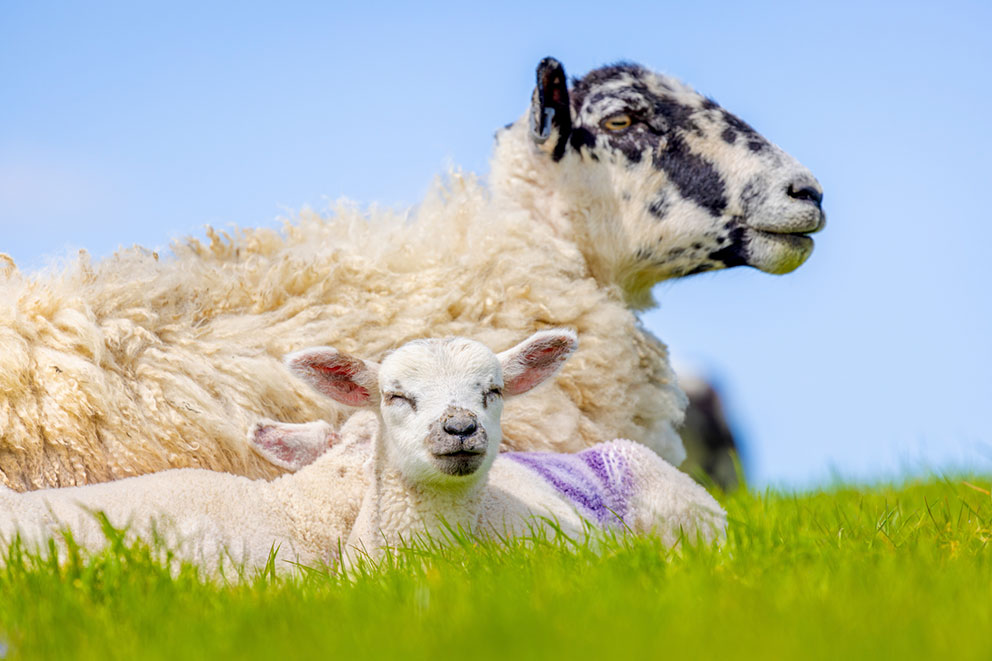2024 Key findings
Our 2024 report shows we’re still a nation of animal lovers, with high expectations of ourselves and the government when it comes to animal welfare. But there are emerging concerns around the role that social media plays in our attitudes to animals and a lack of focus on intensive farming as a major welfare issue.

What we’re excited about
There’s high demand for government action
The majority of survey respondents (84%) expect that animal welfare should be protected through legislation and almost two-thirds of people (64%) believe that the national government is responsible for animal welfare.
Older and younger generations identify as animal lovers
Generations are frequently portrayed as being at odds with one another. However, our research finds that many children and older people share similar attitudes and love towards animals. Both younger and older groups are more likely to be animal lovers (85% for children aged 7–15; 72% for over 55s; 68% overall average). Gen Z and Millenials have different priorities, however, with only 57% of 18–24 year olds identifying as animal lovers – this is useful insight for us when it comes to raising awareness of animal welfare issues across generations. The Children & Young People’s Kindness Index data shows that many young people aged 7–15 want to be kind to animals, especially their pets, but don’t always know the best way to do that.
We are worried about
Pet owners’ regret
There’s been an increase in the proportion of pet owners who regret having a pet. In 2023, one in eight pet owners (13%) regretted owning a pet; this year it’s closer to one in seven (15%) This is equivalent to 2.6 million pets whose owners have regretted owning them. 21% of survey respondents note that this is fuelled by the rising costs of pet care and ownership.
Relentless cost of living
Inflation may be going down, but the pressure on household budgets remains high. People are still feeling huge financial pressures, and Millennials and Gen Z in particular, which is impacting how they can care for their pets.
An overwhelming majority of pet owners (78%) say it’s become more expensive to look after their pet in the last year. This is amplified for the young (aged 18–34) who are more worried about being able to feed their pets compared to those aged over 55 (28% vs 14%) and provide for their welfare needs (22% vs 15%). As a result, animals are suffering.
Social media influence
More younger people have witnessed animal cruelty online, with over four in 10 (43%) of 16–17 year olds and almost one-third (32%) of 18–24 year olds reporting such experiences, compared to 16% of those aged 65 and above. 16 to 17 year olds are also more inclined to report such instances.
Animal cruelty online is now protected by the Online Safety Act 2024, with laws prohibiting animal cruelty being shared online. We’ll continue to make sure that social media companies are responding swiftly to remove harmful content.
We increasingly see people turning to social media as a primary source of advice and information on animals. This is concerning, as misinformation is all too prevalent.
Intensive farming is not a high enough priority
The majority of people (72%) believe that chickens are sentient and can have physical and emotional experiences, including feeling pain. However, this knowledge is not always reflected in their attitudes towards intensive farming or consumer habits. Only 38% of people thought that 'a food strategy that moves away from intensive agricultural methods' was an important issue to address. And we ignore the suffering of billions of chickens who are intensively farmed – bred quickly in overcrowded and poor health conditions – to meet our society’s dietary desires for cheap chicken. (Footnote 1)
Regional differences
Despite being a UK-wide survey, we’re able to highlight differences between England, Northern Ireland, Scotland and Wales towards animals and their welfare.
- While pet ownership is highest in Wales (59%), it has the lowest reported rates of people who get their pets vaccinated every year (55%).
- People in Scotland (86%) and Wales (88%) are most likely to say that breeding animals with genetic health problems is unacceptable, while those in England are most likely to find it acceptable (7%).
- Although overall rates of taking any action to help animals is consistent across the four nations, people in Northern Ireland are most likely to say they shared a missing pet post on social media in the last 12 months (23%); this is lowest in England (17%).
Footnotes:
Footnote 1: The Humane League, 2024, How many chickens live in the UK and what are they used https://thehumaneleague.org.uk/article/how-many-chickens-live-in-the-uk

